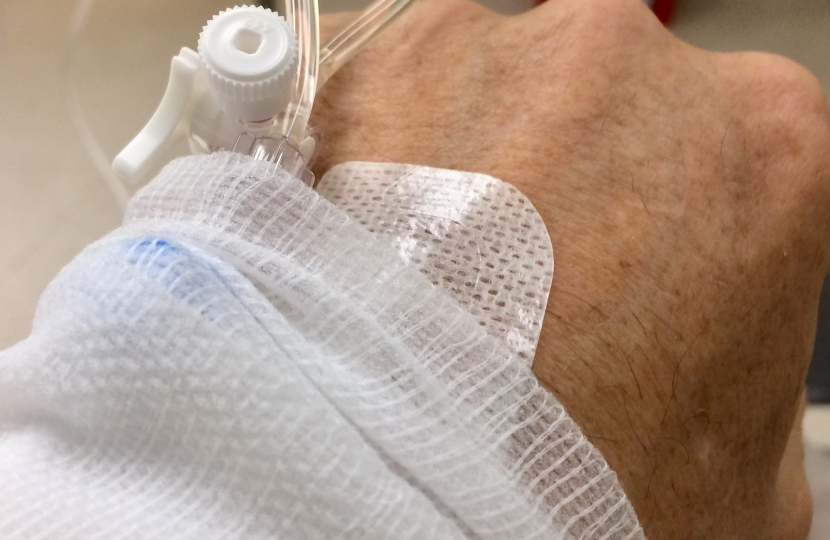
Saturday (February 4th) was World Cancer Day - an international initiative, uniting people across the globe to raise awareness and take action.
Every day in Wales, 55 people are diagnosed with cancer and around 24 people die from the disease.
The number of cases is projected to rise by more than a quarter, to around 24,800 new cases per year in 2040. This increase will place an unprecedented burden on an already stretched healthcare system.
The three-year improvement plan recently published by NHS Wales, which has outlined how health board and trusts in Wales can plan and deliver their cancer care that will improve cancer patient outcomes and reduce health inequalities, is therefore very much welcomed.
According to the report coinciding with the plan, there was a 25% increase in the number of new cancer diagnoses in 2019 compared to 2002.
The report also found that cancer waiting times are now the worst they have ever been with only 54% of patients starting their first treatment within 62 days in November 2022. It went on to say that no health board in Wales had met the target of 75% since July 2020.
When cancer care is delayed or inaccessible there is a lower chance of survival, greater problems associated with treatment and higher costs of care. Early diagnosis improves cancer outcomes by providing care at the earliest possible stage and is therefore an important public health strategy in all settings.
We can all play a part in reducing our chances of getting cancer, with four in ten cancer cases in Wales being preventable.
Smoking and excess weight are the two largest preventable causes of cancer in Wales. They cause around 3,100 and 1,000 cases of cancer each year in Wales, respectively.
Smoking levels are at their lowest recorded point – around 16% of the Welsh adult population smoke, but levels are not declining fast enough. Wales is not yet on track to meet its recently introduced target to be smoke-free by 2030.
Meanwhile, overweight and obesity is at its highest recorded level. 6 in 10 adults in Wales are overweight or obese. If current trends continue, by 2040, 1.8 million people will be overweight or obese.
As Cancer Research UK’s ‘Cancer in the UK – Wales Overview’ states, “Tackling cancer through prevention requires individuals to make changes to their lives, but support from governments and health professionals is crucial to facilitate those changes. The Tobacco Control Strategy for Wales and the Healthy Weight Healthy Wales strategy include important measures such as a proposed ban of price promotions on foods high in fat, salt and sugar (HFSS) and investment in smoking cessation support in secondary care settings.
“We need to see a renewed level of urgency given by Welsh Government to implementing these measures and going further to preventing more cancers”.
CRUK data from 2022 using a UK representative sample (including Welsh participants) found that people recognise 12 out of 15 common cancer symptoms. The most commonly recognised symptoms are lump/swelling, change in the appearance of a mole, unexplained weight loss, and coughing up blood.
Around 55% of people had noticed a potential symptom of cancer in the last 6 months. However, under half of those contacted their GP within 6 months which is concerning. The biggest barriers to seeing a health professional included finding it difficult to get an appointment, not wanting to be seen as someone who makes a fuss and worrying about wasting the healthcare professional’s time.
With around 20,100 people diagnosed with cancer in Wales every year, a figure only set to grow in the coming years, the Welsh Government must ensure that improving cancer outcomes is a priority, as well as broader health policy.
They must also target the large variation in cancer waiting times across Health Boards in Wales.
It is high time that the people in Wales affected by cancer got the services and treatments they deserve.
